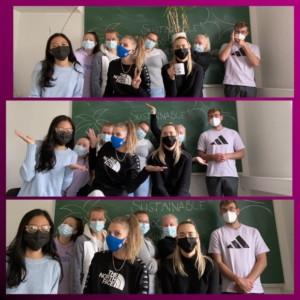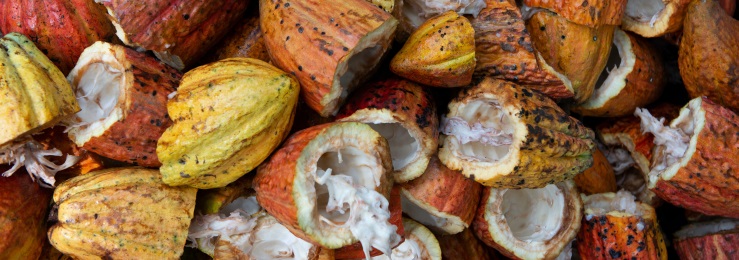Not only climate change, but also the COVID19-pandemic showed us the necessity to conceptional, critical, and innovative thinking in response to social, economic and environmental crises. To make a step further towards sustainable bioeconomy, our project commissions us to evaluate the social sustainability at cocoa plantations in Ghana.
An intercultural team
Our project team was assigned to assess the social sustainability of cocoa production in Ghana. The team members are from different countries and cultures with expertise and insights from several work fields, studies, and individual experiences. The group consists of 8 students from HAMK and hopefully, a few students from the University of Cape Coast in southern Ghana.
The project team is led by Wilma and Siiri. Our team leaders are enthusiastic and willing to promote sustainability along the food chain of cocoa products. The team also has two exchange students from Avans Hogeschool in Netherlands and Rhein-Waal Hochschule in Germany. Not only do they discover Finnish culture, but they also learn about bioprocess applications in one of the most advanced countries in terms of bioeconomy implementation.
Solving sustainability problems virtually
Our team has agreed on methods to create a perfect learning environment and to get used to cultural differences. The team communication and relations build on joint activities, such as weekly meetings or having lunch together. The group is encouraged to communicate in English and overcome language barriers to make progress in communication and research competencies.
We have also decided on multiple learning goals. In common, all members would like to gain knowledge about developments in the African cocoa industry. The students aim to understand the impact of climate change on the social dimension of cocoa production in Ghana. The objective is to propose appropriate and feasible solutions to reduce social sustainability issues.
The students are concerned about issues such as gender inequality and labor rights violation in cocoa plantations. To improve the land use and ownership, as well as raising the awareness of existing social problems, the goal is to directly present realistic, sustainable measures to affected people.
The project is carried out in collaboration with Kultasuklaa, a chocolate company interested in seeking for measures and techniques to make cocoa production more sustainable.
Authors

Team 5 (Iida, Wilma, Lotta, Adryana, Siiri, Janita, Sirja, Gallus), students of Biotechnology and Food Engineering.

